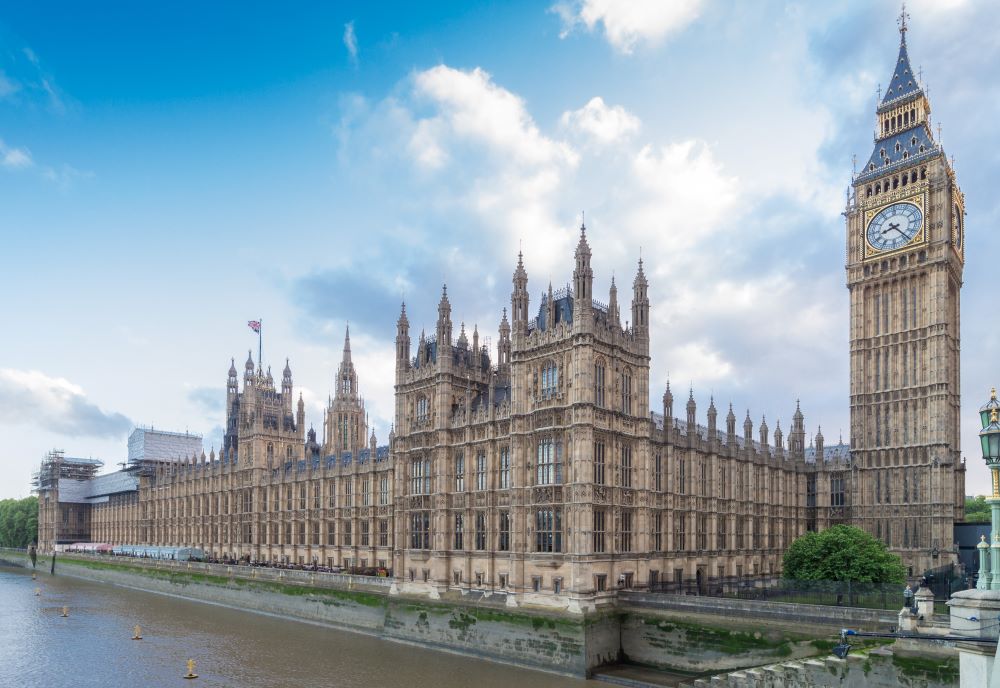
Industry bodies and governments home and abroad need to collaborate closely to maximise the benefits of proposed legislation that could pave the way for the greater digitalisation of trade, a committee in the House of Lords has said.
The Electronic Trade Documents Bill, which yesterday (7 November) had a second committee reading in the House of Lords, will give digital documents equal footing to paper equivalents if it passes into law.
Introducing the bill to the committee, Lord Parkinson, a parliamentary under-secretary at the Department for Culture, Media and Sports (DCMS), said it could provide “benefits to UK businesses over the next 10 years of £1.1 billion”.
Viscount Waverley, a cross-bencher in the Lords, said these benefits could only be realised through the close collaboration of industry bodies – including the Institute of Export & International Trade (IOE&IT) – with the UK and international governments, particularly in the Commonwealth.
Commonwealth gains
Viscount Waverley said the bill could be significant for the “global trading community”, as well as the UK, and said that the Commonwealth is “fertile ground” for driving the international adoption of digital trade processes “given the commonality of common law and language”.
He argued that trade agreements with Commonwealth nations should be templated in such a way as to ensure the legislative framework created by the bill – which enables the use of digital trade documentation – is adoptable in the UK’s partner nations.
His comments about the Commonwealth echo those made by Jens Munch Lund-Nielsen, the head of global trade & supply chains at the IOTA Foundation, in an interview with the IOE&IT Daily Update recently.
Partnership
He further argued that the Commonwealth Secretariat should have a “key role” in informing and encouraging Commonwealth governments about this framework, and said that organisations like the IOE&IT and International Chamber of Commerce should also be also be involved.
He said:
“It is essential that there be a key role for the Commonwealth Secretariat in informing and encouraging governments.
“A mix of the IOE&IT, with additional support from the International Chamber of Commerce as an architect of this bill, together with a secondee of HMRC of this electronic trade initiative [should also be involved].
“A trade advisory to governments - International Economics – might [also] be well-suited to act as a global coordinator.”
He added that he is discussing with the IOE&IT the idea of it becoming the secretariat to the All-Parliamentary Group for Trade and Investment, which he co-chairs.
IOE&IT’s role in digital trade
The IOE&IT is becoming a key partner of government in the move towards digitalising trade following its two policy papers on the topic – Trade data and digitalisation and Enhanced Efficiency: Building a UK border fit for the 21st century.
It has also informed and consulted with the trader community about the government’s plans for a Single Trade Window through webinars and surveys, and is a member of one of the six consortia currently running ‘Ecosystem of Trust’ pilots in the UK.
These pilots use cutting edge supply chain and distributed ledger technologies to significantly reduce the amount of paperwork needed for international businesses to send goods to the UK.
Ecosystem of Trust pilot
Based on the technology the IOE&IT developed with TradeMarks East Africa in Kenya for a Trade Logistics Information Pipeline, the IOE&IT’s pilot is supporting the movements of cut flowers, coffee and tea bags between the UK and Kenya, as well as frozen foods from the EU to the UK.
IOE&IT director general Marco Forgione, talking to the Times about the pilots, said their will ensure that the government has the “security and visibility” across the supply chain that is needed to remove the requirement for extensive checks on goods entering Britain.
“You’ve got security and visibility of all the trade documentations by all the actors, which means that finance costs, insurance costs and logistics costs all reduce because they’re de-risked.
“You no longer have the need to stop shipments at the border. You can do a review or an audit in-market. It means that trade is simplified, speeded up.”



